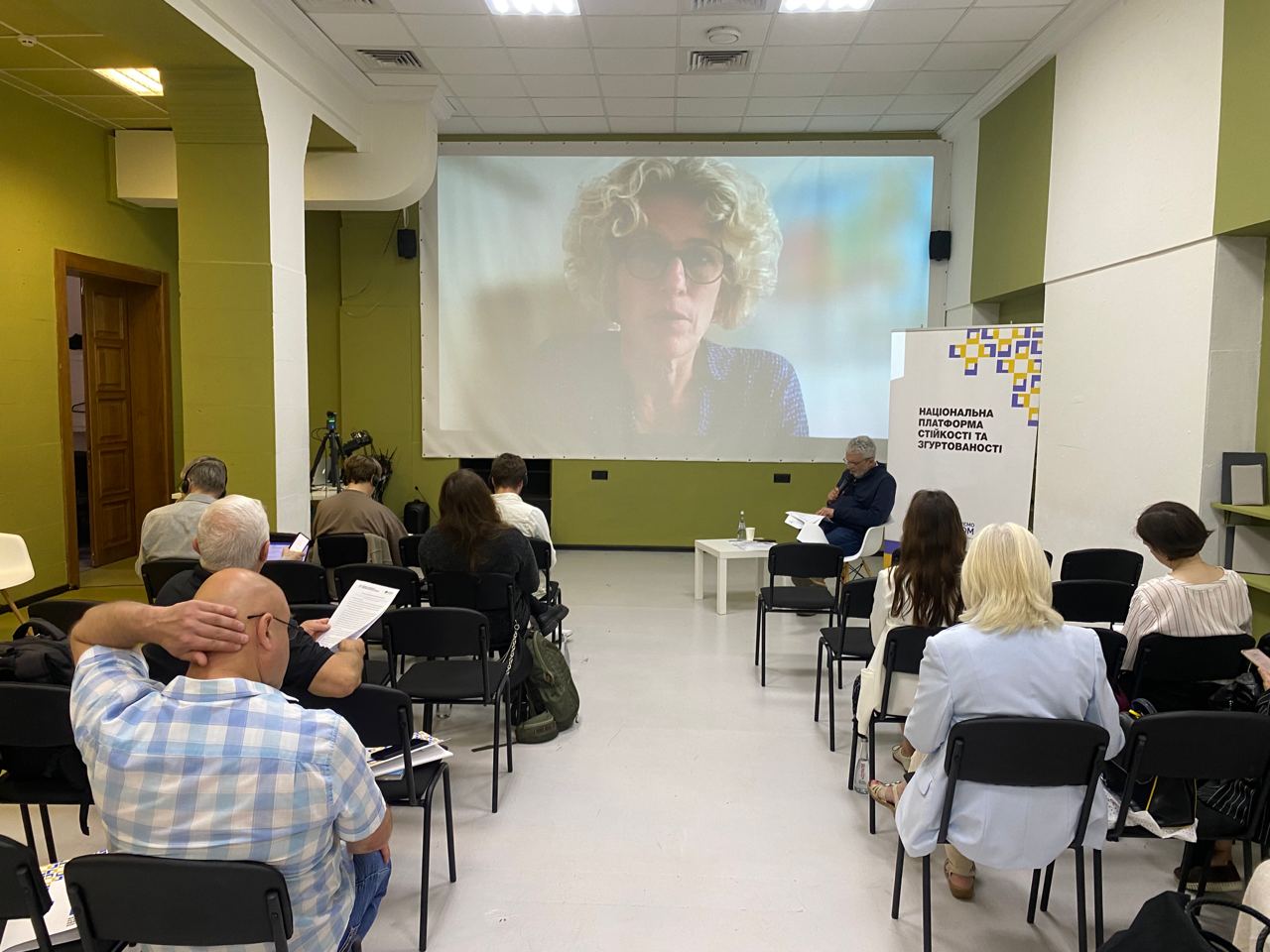EU countries have different opinions on possible options for ending the war in Ukraine, but most are ready to support our country – discussion results

On May 30, 2024, a discussion “2024 Elections for the European Parliament: Impact on Ukraine and Steps to Maintain Support from EU Countries ” was held, organized by the National Platform for Resilience and Social Cohesion on the eve of the next European Parliament elections.
Foreign experts discussed their countries’ attitudes toward Ukraine and possible changes in the context of the elections.
Marie Dumoulin, Director of the Wider Europe Programme at the the European Council on Foreign Relations (France), said that support for military assistance to Ukraine in French society remains generally quite high but has been eroding over the last months.
According to a poll conducted by ECFR in January 2024, a relative majority (35%) believe that Ukraine needs to continue fighting and recapture the temporarily occupied territories. But there are also those who believe that the war will end in a compromise. The French public is divided over the question of Ukraine’s accession and not very supportive of enlargement overall.
In general, Ukraine is not a central issue in the European Parliament election debate, with more discussion of domestic political issues. Some radical parties emphasise the need to avoid escalation and France’s involvement in the war. The French foreign policy is largely determined by the president, but if Macron’s party loses, it could have an indirect impact on France’s clout within the EU.
Wouter Zweers, Expert on EU Enlargement, Clingendael Institute (the Netherlands), emphasized that Dutch politicians generally considered the Association Agreement between the European Union and Ukraine a sufficient form of cooperation. The expert noted that since the war, that position changed and the Netherlands embraced, even if somewhat hesitantly at first, Ukraine’s EU accession perspective. However, the incoming Dutch government will most likely be stricter on the accession criteria. Both the Dutch government and Dutch citizens feel Ukraine should meet the accession criteria before it can join the EU.
In Germany, the attitude towards military support for Ukraine changed considerably after Russia’s full-scale invasion, said Sabine Fischer, Senior Fellow at Research Division Eastern Europe and Eurasia, German Institute for International and Security Affairs (SWP).
She also emphasized that the attitude to the German defense budget has also changed, as the issue of protecting democracy has become a priority.
This is reflected in public opinion polls. According to a recent Politbarometer poll, 47% of Germans support an increase in military aid to Ukraine, while another 31% consider its current amount sufficient. Only 22% are in favor of reducing it.
Regarding Ukraine’s membership in the EU, 51% of Germans believe that it should happen in the coming years, while 41% are against fast accession. 61% of German residents support an increase in the country’s defense budget.
However, there is no such cohesion in the government – Germany today has a “very complex” coalition that finds it difficult to reach agreement on a number of issues. How this will affect the European elections is difficult to foresee.
Sinikukka Saari, Leading Researcher at Finnish Institute of International Affairs (FIIA), also spoke about the support for Ukraine and, in particular, its accession to the EU in connection with security issues. According to her, security issues are currently the top priority for the Nordic countries and they all see Russia as the biggest security threat for Europe. Majority of Finns consider that it is possible that the war will escalate into a wider war, and Europe needs to be prepared for this scenario.
In the Nordic view, Ukraine’s NATO membership would be a major contribution to European security. As for joining the EU, both politicians and society support it, but it is a gradual process.
These European elections are of such great interest for Ukraine, which is a candidate for EU membership,, said Gert Antsu, Envoy for Eastern Partnership, Ministry of Foreign Affairs of Estonia. But, the expert emphasized, the most important elections that will determine Ukraine’s European perspective are the next Ukrainian elections – presidential and parliamentary – after the end of the full-scale war. After all, fulfillment of the accession requirements is a consequence of whether Ukraine will continue to implement reforms.
During the discussion, the experts reiterated that the European integration model will not be changed for Ukraine, the criteria will remain the same. But this is in Ukraine own interests, otherwise both the Ukrainian economy and demographics will suffer. However, the process it itself will be different as Ukraine needs to focus on defense and security issues.
At the same time, Euro-Atlantic integration is less dependent on Ukraine and more on member states. Most likely, Ukraine will not receive an invitation to join NATO at the Washington summit in July, but it may receive clear messages. It is important for Ukraine to communicate positively on the outcomes of the summit, even if no invitation is formalised, says Marie Dumoulin.
Sinikukka Saari added that the EU perceives that Ukraine is integral part of Europe and Euro-Atlantic security. Ukraine needs to work hard towards EU and NATO membership goals, so that it is ready when the window of opportunity to join them arrives.
National Platform for Resilience and Social Cohesion was launched in February 2018. Its activities are aimed at strengthening civil society and resilience in Ukraine. The way to achieve this is to provide proposals to the authorities in developing relevant policies, in particular on national unity, resilience and cohesion, as well as to ensure public awareness of these processes. Since the beginning of its establishment the National Platform has held more than 100 public events at the national, regional and local levels. The initiative is implemented with the financial support of the European Union as part of the project “Sustaining the Resilience of Ukraine towards the Emerging Risks and Consequences of the War”.
